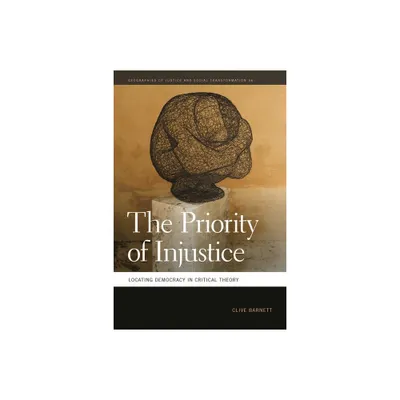Home
Watching Out: reflections on justice and injustice
Loading Inventory...
Barnes and Noble
Watching Out: reflections on justice and injustice
Current price: $19.95


Barnes and Noble
Watching Out: reflections on justice and injustice
Current price: $19.95
Loading Inventory...
Size: Paperback
*Product Information may vary - to confirm product availability, pricing, and additional information please contact Barnes and Noble
Noted barrister and human-rights advocate Julian Burnside explains the origins of the Australian legal system, looks at the way it operates in practice, and points out ways in which it does and doesn’t run true to its ultimate purposes.
Watching Out
is a beacon of legal liberalism in an intemperate age.
‘When put to the test, most people have difficulty identifying what justice is, especially when there is tension between proper process and a desired result. Due process is inherent in our conception of justice. But bad process can yield the right result, just as good process can produce the wrong result. The legal system is designed to produce justice. We call it the justice system — sometimes un-selfconsciously, sometimes with bitter irony. It is designed to produce justice according to law. Whether it achieves that goal is not the subject of general agreement.’
In
, a successor volume to his best-selling
Watching Brief
, noted barrister and human-rights advocate Julian Burnside explains the origins of our legal system, looks at the way it operates in practice, and points out ways in which it does and doesn’t run true to its ultimate purposes.
He examines fundamental legal principles, such as the presumption of innocence, explains why good barristers defend bad people, and sets out legal remedies for wrongs done to individuals and groups.
The law’s reach is immense, and so is the territory this book covers. Legal aid, class actions, assisted dying, counter-terrorism, unjust verdicts, and the treatment of asylum-seekers are some of the contentious subjects dealt with here. There is also a compelling chapter on the plight of people who are bereft of legal remedies, living on the margins of society, and shocking examples of hate mail that Burnside’s defence of refugees has provoked.
Rich with fascinating case studies, and eloquent in its defence of civil society,
Watching Out
is a beacon of legal liberalism in an intemperate age.
‘When put to the test, most people have difficulty identifying what justice is, especially when there is tension between proper process and a desired result. Due process is inherent in our conception of justice. But bad process can yield the right result, just as good process can produce the wrong result. The legal system is designed to produce justice. We call it the justice system — sometimes un-selfconsciously, sometimes with bitter irony. It is designed to produce justice according to law. Whether it achieves that goal is not the subject of general agreement.’
In
, a successor volume to his best-selling
Watching Brief
, noted barrister and human-rights advocate Julian Burnside explains the origins of our legal system, looks at the way it operates in practice, and points out ways in which it does and doesn’t run true to its ultimate purposes.
He examines fundamental legal principles, such as the presumption of innocence, explains why good barristers defend bad people, and sets out legal remedies for wrongs done to individuals and groups.
The law’s reach is immense, and so is the territory this book covers. Legal aid, class actions, assisted dying, counter-terrorism, unjust verdicts, and the treatment of asylum-seekers are some of the contentious subjects dealt with here. There is also a compelling chapter on the plight of people who are bereft of legal remedies, living on the margins of society, and shocking examples of hate mail that Burnside’s defence of refugees has provoked.
Rich with fascinating case studies, and eloquent in its defence of civil society,









![Out for Justice [Blu-ray]](https://prodimage.images-bn.com/pimages/0085391142744_p0_v3_s600x595.jpg)








